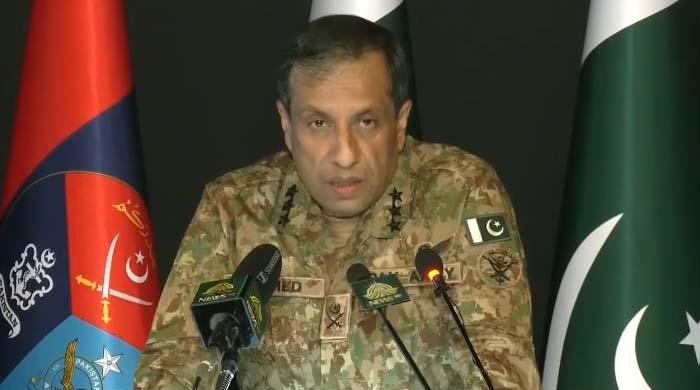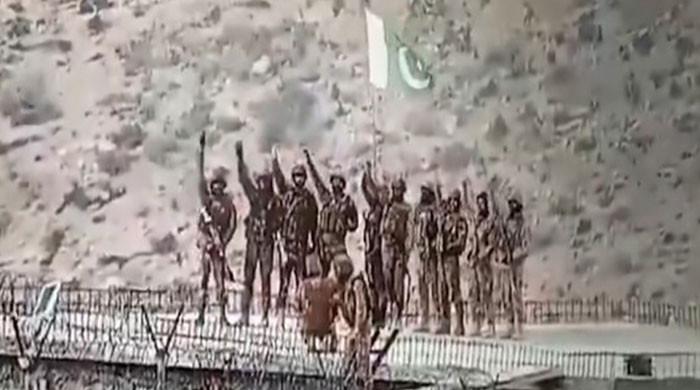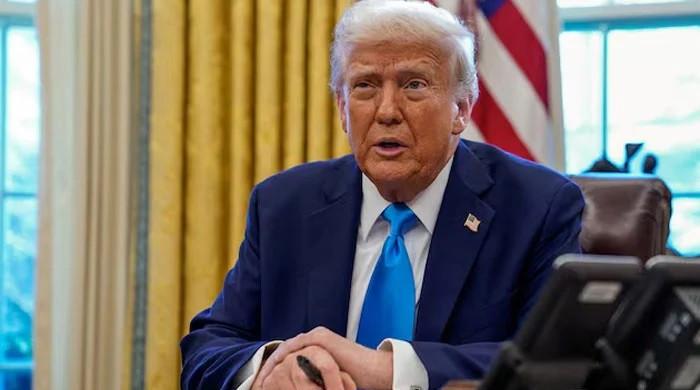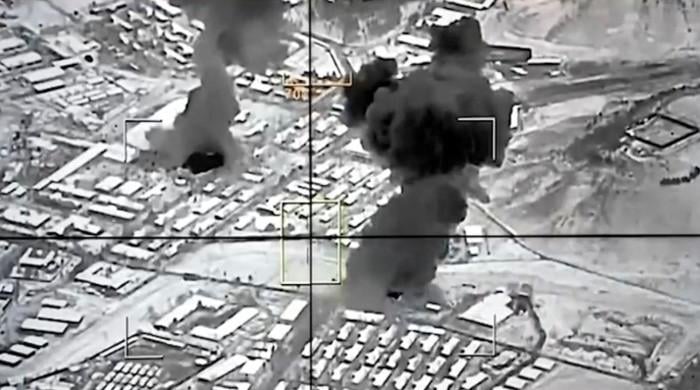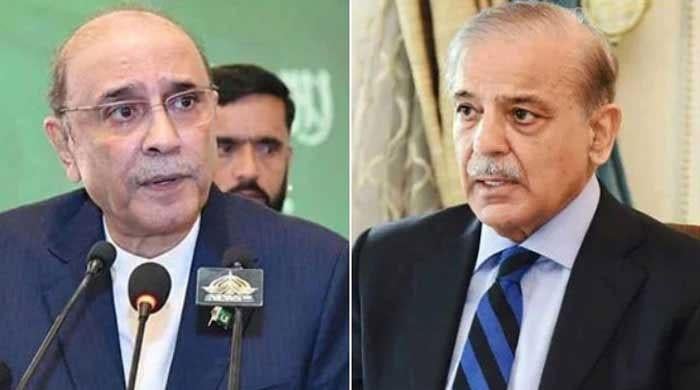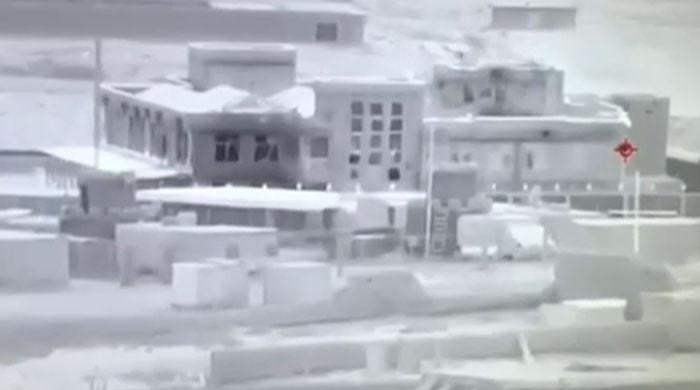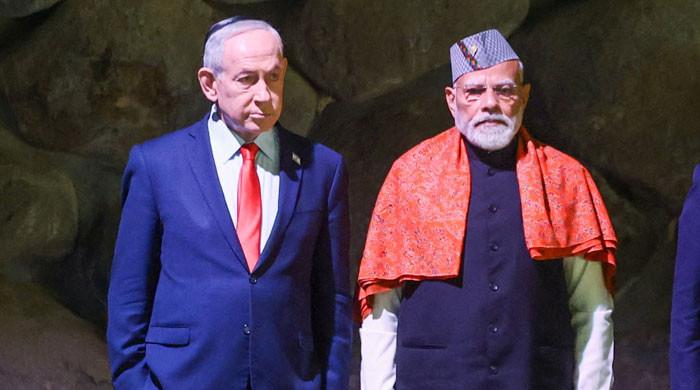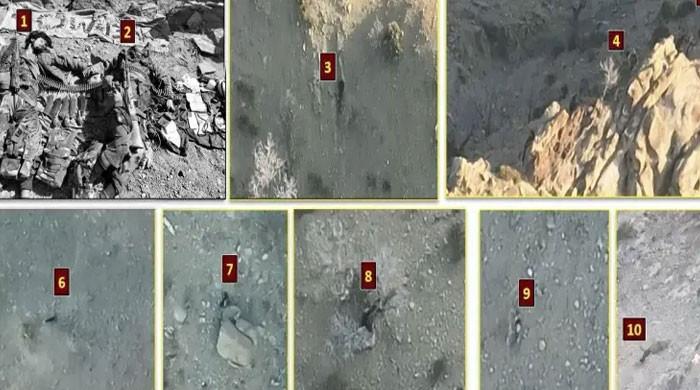Pakistan wants good ties with Saudi Arabia, Iran: DG ISPR
Maj Gen Asif Ghafoor says Raheel Sharif’s appointment not to affect relations with Tehran; says madrassah reforms essential to tackle extremism
April 05, 2017
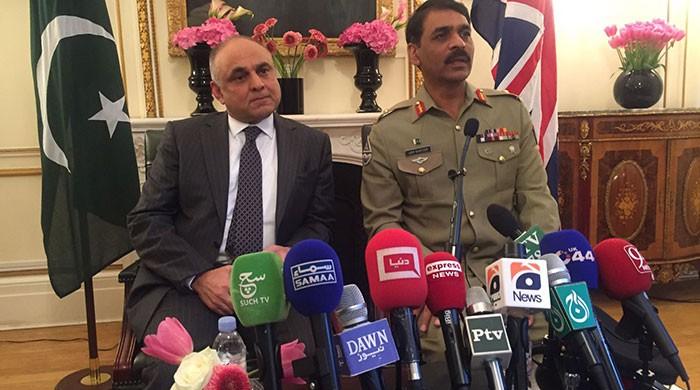
LONDON: The chief of Pakistan Army’s media wing, Major General Asif Ghafoor has said that Pakistan attaches value to relations with both Saudi Arabia and Iran, and General (retd) Raheel Sharif’s appointment as head of the Saudi-led military coalition will help remove confusions.
Maj Gen Ghafoor, Director General of the Inter-Services Public Relations (ISPR), was briefing the Pakistani media at the Pakistan High Commission here on General Qamar Javed Bajwa’s official visit to the UK. He was accompanied by Pakistan High Commissioner Syed Ibne Abbas.
Answering a question, Maj Gen Ghafoor said that more than 16 months ago, the Saudi government had approached Pakistan about the Saudi-led alliance while Raheel Sharif was still the army chief.
He said Pakistan enjoys cordial relations with both Saudi Arabia and Iran, and the decision taken by Pakistan to allow Raheel Sharif to head the Saudi-led military alliance has been taken in the national interest aimed at bringing various countries closer rather than encouraging friction and hostility.
He assured that Raheel Sharif’s appointment would serve as a bridge between Saudi Arabia and Iran, and Pakistani authorities are speaking to Iran at all levels to allay any fears. He said Pakistan values friendship with Iran and Saudi Arabia and wants both countries to become friends too. He added the new coalition would not do anything jeopardising relations between the two Islamic countries.
The ISPR chief said the capability of terrorists has been dented to such an extent that they are just reduced to carrying out small-scale, cowardly attacks using explosives. He said the armed forces and intelligence services are focused on eliminating sleeper cells as well as handlers and facilitators of terrorism and extremism.
He said that as part of the Operation Raddul Fassad, authorities are pursuing madrassa reforms to deal with the core issues of extremism and radicalism. He said certain hotspots of extremism have been identified, and a strategy is in place to deal with the issues through reforms that are long-term and durable.
He said that madrassa reforms are essential for the future of millions of children studying at these places. He added madrassas have an important role in the Pakistani society as they render valuable service by providing religious education as well as lodging and boarding facilities to millions of children.
Answering another question, Maj Gen Ghafoor said that issues of extremism and corruption can effectively be dealt with through structural judicial and police reforms, and Pakistani institutions are working together for these reforms.
Responding to yet another question regarding the Panama Papers leaks case, the ISPR Director General said that any decision on the case shall be acceptable to everyone, adding that it's up to the independent court to decide.
He said that Pakistan is not involved in any kind of proxy wars and does not, as a matter of policy, believe that proxy wars offer the way forward. He added that Pakistan is against proxy wars as well as power struggles.
He said Pakistan respects the sovereignty of all countries and expects the same from others. He stressed that the Pakistan Army believes in self-defense and in defending Pakistan’s sovereignty and has always acted when it became necessary, including quite recently.
The DG ISPR said that Afghanistan is Pakistan’s brother Islamic country and Pakistani state believes in building cordial relations with Afghan brothers and sisters. He said Pakistan’s relations with Afghanistan are historic and both countries are bound with each other in strong religious, social, cultural and geographical contacts.
When asked about Hussain Haqqani’s assertion and the DG ISPR’s recent tweet on the visa issue, Maj-Gen Ghafoor said it’s the ambassador and high commissioner who are the competent authorities to issue visas, not the defence attaches. Pakistan’s High Commissioner to the UK Syed Ibne Abbas affirmed that that was the case.
Speaking about General Qamar Bajwa’s official visit to the UK, the DG ISPR said it was a productive visit in which meetings with civil and military leadership were held. He said the Army Chief addressed various think tanks and presented Pakistan’s defence point of view and apprised the British leadership of Pakistan’s stand on various issues, its concerns on issues and Pakistan’s take on how to resolve them and move forward.
Maj Gen Ghafoor said Pakistan’s armed forces are ever prepared to deal with any internal or external threat and are committed to defending the territory and responding to challenges.




